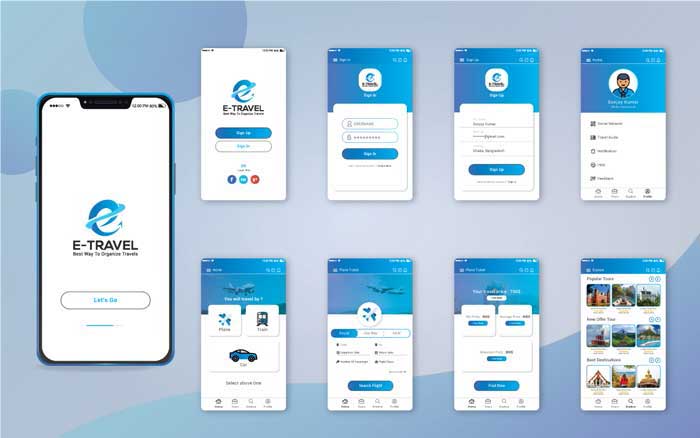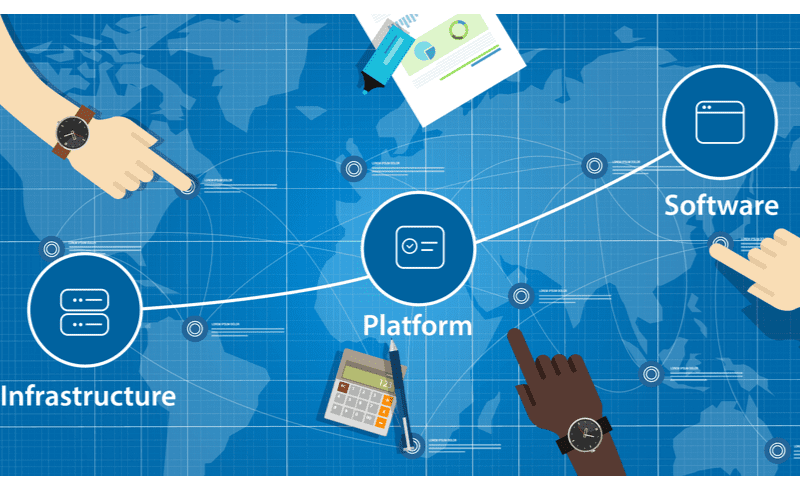Did you know that 70% of tech jobs don’t need you to write any code at all? Well, while coding gets a lot of attention, some of the high-paying tech skills for 2025 DON’T involve coding at all and these skills are just as important for the future of the industry.
If you want to start a tech career without taking a long time to learn Java or Python, these skills will help you stand out and be in demand. Are you ready to find easy ways to succeed in tech without coding? Then these top 5 high-paying in-demand tech skills are for you! Let’s get started!
Table of contents
Why a Tech Skill?
This is an important question for many people before they pick a career or the next step in their job. Having a tech skill is not just a choice anymore; it’s needed to stay relevant in your job. Technology improves every day, and it is part of our lives through different apps in areas like health, money, education, and entertainment.
Studies show that 90% of jobs today need some digital skills, making it very important to be digitally relevant. Companies today are always looking for people who can create new ideas and use technology to fix tough problems. If someone wants to be noticed, learning popular tech skills that don’t need coding is a great way to achieve that.
Read: 10 Hot Tech Jobs in Global Demand 2025
How do I know the Best Tech Skill for Me?
There are a few things you must consider before you pick the best tech skill tailored to you. To find the best tech skills for you:
Step 1- Look at Your Interests
Consider what makes you excited. Do you enjoy organizing data, making designs, solving problems, or looking at trends? Your interest can help you find useful tech skills.
Step 2- Find Your Strengths
Are you good at talking to others, handling projects, or noticing patterns? Connect your natural skills with tech skills that enhance them.
Step 3- Think about your career goals
What job or field do you want to be in? Look into the skills you need for your dream job and work on getting them.
Step 4-Check out what is happening in the industry
Technology changes quickly, so watch for skills that are needed. Websites like LinkedIn Learning, Coursera, and Glassdoor job reports can help find out what is popular.
Step 5- Experiment and Learn
Try free courses or beginner projects in areas like UX design, data analysis, or digital marketing. This will help you find what you enjoy.
Step 6- Ask for feedback
Speak with mentors, friends, or coworkers in tech. They can help you understand skills that match your personality and goals.
RELATED READ: Can I Put My Certificates of Completion Under Skills on Reddit?
5 In Demand Tech Skills That Don’t Require Coding You Need To Learn In 2025
#1. Digital Marketing

Ranking at #1 is Digital marketing. It’s one of the non-coding tech skills that don’t require coding in 2025. It is concerned with promoting any product or service through online channels like websites, social media, search engines, and emails. Digital marketing helps devise strategies that might help businesses reach their target audience, increase the awareness of their brands, and, finally, create sales or engage the target audience.
Skills Required:
SEO (Search Engine Optimization)
Having a good sense of how SEO works, best practices, and content optimization together are crucial to run a successful digital marketing campaign. You don’t have to be a tech expert or even learn to code, but understanding keywords and tactics for ranking higher in search results is essential.
Social Media Marketing
Marketers have to understand the basic components of social media marketing. You should ensure that writing a piece and publishing it isn’t just everything. Your content has got to be relevant, targeted, and catching if users are going to scroll to a stop and click. Understanding of the strengths of each platform and whether they will be appropriate for targeting your target audience also plays an important function.
For example, a fitness brand could be serving clients between the age of 20-30 years, hence they can utilize TikTok for brand awareness; maybe posting videos featuring clients at their fitness class or some promo video showcasing what you are offering. In contrast, should you supply computers to the B2B industry, then LinkedIn would perhaps be your connecting tool.
Email Marketing
Now, with the phasing out of cookies and the uprising for first-party data, email marketing becomes a real game changer. It enables you to be truly close and personal with your audience. All you need to do is: manage campaigns, sort out contacts, and send targeted communications with tools like Mailchimp.
Benefits:
- Flexible Work Environment
- High Demand
- Global reach
- Measurable results
- Creativity and Innovation
- Diverse Job Roles
- High Customer base
- Promotes engagement
Job Outlook:
The job outlook of digital marketers in this career shows it should grow by 8% from 2023 to 2033.
Salary:
Generally, Salaries in digital marketing depend on experience, job role, and location. If you are starting, you can expect to make between $40,000 and $55,000 each year. After a few years of experience, you can make as much as $55,000 and $75,000 each year.
If you have a lot of experience or you work in a management role, your salary can be as high as $80,000 and more than $120,000 each year. If you have a lot of experience or work in management, salaries can get up to $80,000 to $120,000 or more each year.
Tools and Platforms
You can consider tools like-
Think about getting certifications to prove you know what you’re doing.
RELATED READ: Top Certifications in Digital Technology Skills
#2. UI/UX Design

UI deals with the outlook and feel of a product or service. It’s basically a visual language through which users communicate. UX is the broader term that can explain how a particular person feels during his interaction with any sort of product or services. It is one of the tech skills in 2025 that does not require coding.
Skills Required
Prototyping, wireframes, user flows, and mockups
Much of product development is imagining how the product will look and feel. What you have in development could be a wireframe, a low- or high-fidelity prototype, a mockup, or a user flow.
These interaction design aspects are practical abilities that require practice. Fortunately, you can start with a pen and paper. If you’re just starting, consider using a free tool like Origami Studio. Popular commercial prototype tools, such as InVision, or Sketch usually have a free trial. You can kick off with them.
User research and usability testing
To create a product that solves a user problem, fulfills a user demand, or just pleasures a user, you must first understand who that user is. This is where user research comes into play.
Conducting the appropriate form of user research for the product or feature you’re building will help you improve the product even more. As you create prototypes, you’ll use user testing to confirm your design decisions. Understanding how to iterate through these two user-centric phases can help you become a more effective designer.
Collaboration
As a UX designer, you’ll be working with other teams frequently. Depending on the project and stage of development, you may collaborate with leadership to set business objectives, user interface (UI) designers to add visual elements to a mockup or high-fidelity prototype, or developers to convert your designs to code.
Working as a team also entails understanding how to provide and take feedback, as well as incorporating new ideas to create the greatest possible result.
Benefits
- Flexible Work Environment
- Problem solving
- High Demand
- Global reach
- Varieties of industries
- High potential for career growth
- Financial stability
- Competitive advantage
Job Outlook
The demand for UX designers is continually rising. LinkedIn even placed UX design as one of the top five in-demand skills in 2024. In some parts of the world, the demand for UX designers is more than the number of designers available. This gap is keeping UX designers in great demand around the world.
Salary.
The demand for UX designers has continually expanded since the UX industry’s inception. McKinsey ran a research that shows that design-led organizations generate more revenue and perform better overall. As this becomes more widely known, the average UX designer wage rises to reflect it.
As of January 2025, the average UX design salary in the United States was $94,747.
Tools and Platforms
To get into mastering this tech skill that requires no coding, you should consider using any of these tools and platforms-
If you are a creative, is detail-oriented and enjoys to build things, you should really consider a UI/UX design.
RELATED READ: How to Boost Your LinkedIn Profile for International Recruiters
#3. Data Analytics

Most businesses constantly acquire massive amounts of data—but in its basic form, this data is meaningless. That is where data analysis comes in. A data analyst will collect raw data, arrange it, and then analyze it to convert it from unintelligible numbers into logical, understandable information.
Skills Required
Machine Learning
Simply put, this involves developing algorithms to find patterns from big datasets that continuously improve with more data fed to them. This tech skill requires no coding. Basically, more data consumed by a machine learning algorithm make it “smarter” and more accurate in predictions.
Data analysts are not expected to be experts in machine learning. However, increasing your machine learning skills may give you a competitive advantage.
Statistical Visualization
Extracting insights from data is only one aspect of the data analysis process. Another critical component is crafting a story using those insights to assist guide better business decisions. The other equally critical component is a well-crafted story using the insights derived to support better business decisions. That’s where the area of data visualization steps in. In the case of data analysts, the graphical or charted output using maps or other forms of visual representation supports communicating the results in an understandable format.
You should also read:
Benefits
- Flexible work hours
- High Demand
- Job Security
- Competitive salary
- Diverse career opportunities
- Decision making skills
- Teamwork and collaboration
- Opportunities to specialize
Job Outlook
The United States Bureau of Labor Statistics says that the job market for data analysts will grow by 23% from 2022 to 2032, and employers are ready to pay even more.
Salary
Based on statistics from more than 7,000 data analysts in the United States, the average yearly salary for a data analyst is about $80,000. The Bureau of Labor Statistics says that the median yearly wage for US workers in the third quarter of 2023 was $58,136. A job as a data analyst could earn you much more than what most people make.
Tools and Platforms
If you are considering getting a hang of data analytics, you should consider tools like-
So, if you love numbers, logic, problem solving and an attention to detail, you should really consider becoming a data analyst.
#4. Tech Sales or SaaS Sales

SaaS sales is the process of selling web-based software that clients access through an online portal. The customer success team manages SaaS software, which is backed by the provider’s product developers. You don’t have to know coding to have this tech skill in 2025. Your job would be to concentrate on upselling and retaining existing clients while also bringing in new ones.
Skills Required
Product Knowledge
To properly market SaaS solutions, sales reps must have a thorough understanding of the product or service they are delivering. This requires intimate knowledge of the SaaS solution’s capabilities, functionalities, and benefits. Clients want sales representatives to deliver precise information and confidently answer technical questions.
Technical expertise.
A strong understanding of technology and software principles is required. Sales personnel should be able to demonstrate how the SaaS solution interfaces with their clients’ existing systems, ensuring a smooth setup and operation.
Market and industry awareness.
SaaS sales personnel must stay current on industry changes, market expectations, and the competitive landscape. This insight allows them to successfully position the SaaS solution.
Sales Tools and CRM
The ability to use sales tools and Customer Relationship Management (CRM) software is critical. These technologies automate procedures, track leads, manage communication, and provide insights to improve the sales process.
Benefits
- High earning potential
- Flexibility and remote work
- Job security
- Growth Opportunities
- No technical background required
- Transferable skills
- Helping businesses succeed
- Networking opportunities
Job Outlook
The global SaaS market nearly quadrupled its value in sales between 2019 and 2022, and it’s predicted to continue rising at a strong rate through 2026 and beyond. This increase has created a need for sales experts who are experienced at selling SaaS goods to enterprises.
Salary.
Research by Glassdor, shows that the Saas Sales salaries are expected to be $219,775 per year, with an average of $97,710.
Tools and Platforms
So if you have strong communication skills, are resilient, persistent and is tech savvy, then you should really consider a career in this niche.
RELATED READ: 10 Common Mistakes to Avoid at Corporate Networking Events
#5. Product Management

As a product manager, you will need to share product goals and plans with other parts of the organization. It has to do with making sure everyone is working towards the same goal for the organization. In 2025. all you need for project management are tools and platforms , and you don’t require any coding for this tech skill.
Skills Required
Technical Skill:
Although they should have a solid understanding of the technical side of product development, product managers have no need of knowing how to code. Collaborating directly with web developers, as a product manager will ensure that a product is produced and tested in line with your defined standards.
Critical thinking
Product managers need to make choices about the product, the plan, and how to use time and resources every day. They have to find a balance between what is good for the business and what is good for the user. This requires great critical thinking skills.
Research talents
Product managers need to know their target market very well to create successful products. Doing research is a key part of the job. This involves looking into market and industry trends, competitor products, and the target user group.
Problem-solving
Product managers are exceptional problem solvers. It is the basic foundation of what they do: develop products that answer real-world user problems.
Benefits
- Leadership opportunities
- Learning and growth
- Lucrative pay
- Potential for entrepreneurship
- Cross functional collaboration
Job Outlook
The Bureau of Labor Statistics predicts that product management will rise by about 10% by 2024.
Salary
The average compensation for a Product Manager is roughly $90,000, with major IT companies often providing salaries over $175,000. Product Managers in New York City earn approximately $105,000 per year.
Tools and Platforms
If you think you know what it takes to be a boss, think analytically and give instructions, you should consider becoming a project manager.
Conclusion
And there you have it! 5 amazing tech skills that don’t require coding but can still land you incredible jobs in 2025! Whatever you like to do, there is a skill for you here.
What are you waiting for? What skill without coding would you get started on? Think about where you might be in a year if you begin today.
For other careers you could pivot to, consider reading:
Frequently Asked Questions
Yes! Skills that don’t involve coding, like UX design and data analysis, are very important for connecting creativity and function in tech.
Yes! You can learn many tech skills that don’t involve coding in just a few months by using online courses, tutorials, and practice.
No, you don’t! Many tech skills that don’t involve coding focus more on creativity, solving problems, and communication.
References
- Simplilearn.com-No coding tech jobs
- Sitepoint.com- 10 in-demand tech jobs 2025
- Devry.edu- tech jobs without coding






